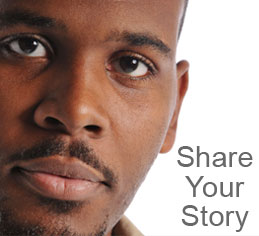NAMI FRONTLINE WELLNESS


Frontline workers face many challenges in their day-to-day work lfe. From the pressure of making sure people get the help and care they need to working long shifts - health care and public safety are stressful fields of work.
When you encounter chronic stress, trauma, and the negative effects of shiftwork as a part of your daily work life, an added source of stress like COVID-19 can feel overwhelming. With concerns about passing the virus to family and friends, protective equipment shortages, exposure to financial pressures and long hours - you need support now more than ever.
For many frontline workers, the pandemic has taken a toll on their mental wellness. And if you are struggling, you are not alone.
NAMI is here to help.
We have joined the #FirstResponderFirst initiative to support frontline heatlh care and public safety workers facing the adverse mental health effects of the COVID-19 pandemic. This community-centered initiative is called NAMI Frontline Wellness.
Health Care Workers
As a frontline health care professional, you experience stress daily. Your job places unique demands on you that are not typical for most, and it can add up over time. The COVID-19 pandemic has created additional stressors that may feel overwhelming. Learn more.
Public Safety Workers
Let's face it: first responders often deal with the unimaginable. Maybe it's one specific call, maybe it's a series of them. The COVID-19 pandemic has added to an already difficult and frequently dangerous job. The effects of stress are real and should not be ignored. Learn more.
Suicide Prevention
If you are in a crisis, there are resources you can turn to:
- Maryland's Statewide Information and Referral (for emergency mental health services): 211 press 1 or text zip code to 898-211.
- Listings by County.
- Crisis Text Line - Text "NAMI" to 741741.
- Go to a safe place and dial 911 to ask for immediate assistance if the situation is life-threatening or if serious property damage is occurring.
It can be difficult to share your story, but it's important. It reminds everyone that we are all in this together. If you are a frontline professional and would like to support your peers by telling your story and offering encouragement, post your own video on social media and tag @NAMICommunicate with the hashtags #NotAlone and #FirstRespondersFirst. Learn more.
Webinar Series and Additional Resources
NAMI Maryland is developing and disseminate free webinars and fact sheets for a wide range of audiences. During these difficult times, these resources have been critical as a means of education and support for individuals living with mental illness, their family members, and providers who are trying to navigate the dual pandemic. Learn more.
Other Resources:
- First Responders' Mental Fitness resources from myStrength provides tools and support specific for first responders, empowering them to manage stress, address burnout, improve communications and build resilieny over the long-term.
- Operation Courage is a new support services program through the Maryland Department of Health (MDH) designed to address the growing and long-term mental health care needs of frontline workers and first responders amid the COVID-19 pandemic.
- BHA/MedChi Behavioral Health Webinar Series: Helping the Helpers and Those They Serve is a webinar series for Maryland's behavioral health and medcal health care workers of all disciplines, whether working in community or hospital settings.
- Free Counseling, Stress Management, and Crisis Support for Long-term Care Staff. Counseling Stress Management and crisis support is available in Maryland for staff at assisted living facilities, group homes, as well as nursing homes. This service offers fre, confidential counseling support to ALL employees of Maryland's long-term health care facilities impacted by the coronavirus outbreak.
- Coping with Stress and Passion Fatigue for Healthcare Professionals. This tip sheet explores stress and compassion fatigue, as well as signs of distress after a disaster. It identifies ways to cope and enhance resilience, along with resources for more information and support.
- BHA/MedChi Behavioral Health Webinar Series: Helping the Helpers and Those They Serve: These webinars are for Maryland's behavioral health and medical health care workers of all diciplines, whether working in community or hospital settings. They are designed to enhance both health care worker self-care and resutantly the care they provide, as health care workers combat numerous stressors.

